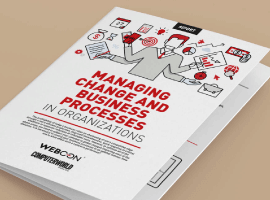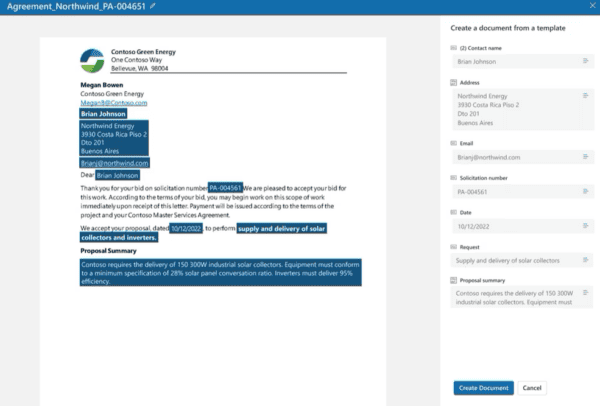SharePoint has a multitude of vital roles which relate to:
- A SharePoint solution being delivered
- A SharePoint solution being supported
- A SharePoint solution being managed
For organizations faced with the possibilities of implementing a SharePoint solution the relevant skills required can often leave them at best bewildered. And, without clear guidance, or knowledge of the roles required to carry out
one of the above solutions, will leave organizations assuming that assume that all three can be serviced by one individual. Then, leaving one individual with having those multiple roles becomes part of normal operations, or BAU (Business As Usual), and strengthens the perception that one person is providing value in all those roles. However, that value is rarely measured, or defined, or even qualified into a TOR (Terms of Reference).
Many organizations face difficulties in defining the actual skills and roles needed to deliver against a SharePoint solution and how SharePoint services can be delivered and managed. This mis-understanding is exacerbated by a lack of knowledge in the recruiting process in ensuring the roles needed matches the business requirement. Once recruited, some organizations then fail to measure and evolve those roles. In fact, some organizations will attempt to short cut a service delivery of SharePoint requirement, and wrongly assume, for example, that a SharePoint Administrator is a SharePoint Developer is a SharePoint Solutions Architect is a SharePoint support team member. It is not un-common therefore to find individuals in organizations where they are carrying out multiple SharePoint roles, and are announced as the ‘SharePoint Guru’, the ‘SharePoint Superman’, or even the ‘SharePoint uberDude’.
Whilst it is not un-common therefore to see the situation of a multi-SharePoint role of a SharePoint uberDude, where that person with that title walks corridors, and meets the ‘low bows’ and ‘nods of respect’ from their IT peers. However, those finding themselves running in multiple SharePoint roles will find their training and career options difficult to quantify, and difficult to apply. The organization will not be able to truly define the career path covering of the multitude of roles being provided by the SharePoint uberDude. They simply will not understand whether the SharePoint uberDude is technical, or business oriented. They will not find the luxury of applying time to, or understand any
of the benefits of training that the SharePoint uberDude requires.
And simply using third parties to supply SharePoint resources is not a sustainable solution to an organization with an evolving SharePoint platform. There are those in the SharePoint provision sector as third parties who believe that they can provide all the relevant skill sets to meet a client requirement. Whilst this is a certain necessity in the delivery of a SharePoint solution, for example, the organization faced cannot sustain their SharePoint platform by completely relying on a third party. They will not control the key area of SharePoint service delivery of that solution. That is because they may (and in some cases will) not have the ability, the inclination or the burning need to refine the skills of the individual(s) to match with the culture of the organization going forward.
As SharePoint evolves in an organization, so does the need to manage its provision and continually help SharePoint solve business, information and collaborative challenges. This is using a service oriented delivery and agile delivery
process, requiring that the business and technological models align. That means ensuring that the roles and skills of people resources align and continue to do so. This is not something that even a SharePoint uberDude can deliver. The key role in making that happen, is a SharePoint Champion, who is a business member, elected by the organization and for the organization.
Why is a SharePoint Champion Required
Here’s an example. An organization wants SharePoint implemented. They state ‘You will have SharePoint to save stuff on’. They ask IT to immediately deploy SharePoint. This is what happens:
- SharePoint is downloaded and installed
- Someone from IT shows SharePoint
- People are told to get on with it by IT
- SharePoint is largely unused – lack of confidence and input by information workers
- Supporting SharePoint becomes difficult
- No confidence amongst information workers becomes non-committal
- SharePoint stops being used
- Revolt as other products are identified
- Organization vision is perceived a failure
- IT provision is perceived a failure
- Service delivery is negatively impacted
The problem is not the statement, instead, it is the lack of any process or using any kind of service orientation or strategy, all of which will include user adoption of SharePoint. That requires the understanding and continual evaluation of relevant business models and then capability mapping to technology. Ideally there is a close correspondence and alignment between the business model and the technology model, but in practice this relationship is not often the case. This will be due to a number of reasons, but the main one being that inward facing IT departments do not work closely enough and effectively enough the business. Internal implementation and business functional exposure is not aligned.
And, whilst organizations attempt to stem this gap by plugging in the SharePoint uberDude, the reality is that soft skills are required, particularly from a business perspective. Please note that I am not arguing that there is no case for SharePoint Architects, Solution Architects, or SharePoint technical delivery teams. Far from it! They are definitely required. They are outward facing, and connect deeply with the business side of the organization. However, specifically they are not experts in the business in question. Neither are they generally part of the organization personnel structure and they do not manage the solution once in place. They will not have the luxury of covering all user interactions with SharePoint. They are responsible for defining the solution that meets business capability through requirements mapped directly to the technology at hand, provided through user requirements. And, to do that they use an objective language that allows them to talk with the business about the business, and therefore connects the business with the IT departments.
So, there is a role which can not simply be provided by putting in a SharePoint ‘guru’, or by electing someone from an IT department to manage business policies and further requirements of a SharePoint solution once implemented. The role needs to be sought from within the business makeup of the company, and needs to be someone who can aid user adoption and at the same time face IT / SharePoint technical delivery teams.
A SharePoint Champion is an individual who sees the advantage of using SharePoint and finds ways for its use in new and advanced ways in order to produce better results and help move our organisation forward. They are not administrators and will not be technical experts in SharePoint! They work together in a cross functional network to support the use of SharePoint and help drive up user adoption throughout the business and create the ‘platform governance’.
What are the benefits of being a SharePoint Champion?
- Visibility to senior management
- Opportunity to meet and collaborate with people from other areas of the organisation
- Improved business insight into their function gained from being at the focus of any business related matters related to their site
- Improved skills such as training and communication gained from educating their peers
- Increased SharePoint knowledge and overall basic strategy and support best practice
What are the roles of a SharePoint Champion?
SharePoint Champions initially come from the evolution of SharePoint and are identified early. They generally take on the management of a SharePoint site or group sites; because this grants them the opportunity to learn more about SharePoint as solutions get implemented and the platform evolves. SharePoint Champions promote use within their business functions, build better governance within their site, and are the focus of any business related matters related to their sites.
This will drive user adoption and bring the all closer to achieving the goals that drove the organizations initial investment in SharePoint. Let us take a look at the key roles that a SharePoint Champion covers.
Discuss, propose and help make decisions
The SharePoint Champions can help define business policies surrounding the usage of SharePoint, which leads to and helps sustain platform governance and related decisions. Because of their direct connection and knowledge of business capability, they help shape SharePoint solutions to solve business and information challenges. SharePoint Champions are key to help broaden SharePoint experiences amongst their peers. This is the single most helpful effort when it comes to creating business policy decisions. By utilising SharePoint Champions to expose a variety of SharePoint experiences to their peers, causes those peers to look closer at SharePoint from different perspectives to meet their information collaboration requirements, for example.
Help communicate and train users on key benefits
SharePoint Champions are able to communicate the basic functionality of SharePoint and act as middlemen between information workers and the IT support team. They communicate the expectations of the SharePoint service provision as part of any SharePoint solution delivery change process, and are able to because they have clear lines of communication with their peers, and can act as mentors.
Of course, to aid them communicate the right messages and in the ways needed there must be a variety of knowledge sources available to them covering SharePoint from a basic use perspective, to the specific solutions put in place using SharePoint. Training resources such as the like the SharePoint Productivity Hub, the SharePoint User Adoption Kits, and a centre of knowledge to pull the relevant messages using a combination of those and images, symbols and stories.
Be the contact point
SharePoint Champions act as the middlemen between SharePoint Support and business Information Workers (generally their peers), by representing their function / department / business unit for SharePoint. For SharePoint support, SharePoint Champions provide extra mind-eyes to see problems and issues, and can compare them to apparently unrelated situations and see new opportunities.
Dedicated and committed to the role
The key to having people change and adopt SharePoint solutions is directly related to commitment, which comes from the enthusiasm, dedication, and desire of the elected SharePoint Champions, working closely with a dedicated and committed SharePoint delivery team.
SharePoint Champions are seen as committed to SharePoint because they believe that can help provide their peers with the motivation and energy required to sacrifice their current collaborative process, utilising relevant tools, in pursuit of a collaborative process provided by SharePoint solution comprising of its enhanced tools. If this there is no commitment, then there will be impacts to the relevant SharePoint goals of the organization, and thus be seen as a major constraint in its ability to change.
Therefore, SharePoint Champions are chosen by their line managers and peers not due to their technical knowledge, but on their business acumen combined with the desire to succeed and make a positive difference in the way their business processes can be enhanced using SharePoint solutions. As part of this, SharePoint Champions would need to have dedicated time to fulfil the role correctly. For example, organizations have been known to apply half-a-day a week to each of their SharePoint Champions to attend meetings, brain-storming sessions, workshops, etc.
Attend SharePoint Champion meetings
The SharePoint Champion represents their area by attending scheduled meetings (for example, fortnightly) which generally do not exceed one hour in length. The purpose and benefits of such meetings are as follows:
- Sustains SharePoint Champion engagement
- Allows the sharing of SharePoint updates, business and technical from SharePoint Champion ‘area’
- Provides a sense of community
- Provides a regular forum
- Allows the sharing of ideas in enhancing productivity and user adoption in SharePoint
- Allows the full discussion of business policies
- Allows the sharing of successes and failures
- Allows the tracking of actions and results
- Keeps members up-to-date on SharePoint trends
- Provides a yardstick in measuring the effectiveness of SharePoint training, communication and governance
What value does an organization extract from having a SharePoint Champion on board?
Organizations that put into place SharePoint champions will:
- Be able to utilize and rely on a bank of individuals who are committed to providing stable and successful SharePoint solutions
- Be able to define and sustain strategies for user adoption
- Be able to define and sustain business policies for SharePoint solutions
- Be able to employ methodologies for achieving success and improved adoption
- Be able to leverage internal resources and to promote SharePoint initiatives
SharePoint Champions because of their commitment and enthusiasm for SharePoint will already have the skills necessary to communicate the benefits of a SharePoint solution being utilized within their department. This is because they can identify what the best communication process and levels that suit them and their peers, the best kind of training, and they can drive through top level business processes that relate to the provision of the SharePoint solution.
Goal alignment of Business and Technology is easier to achieve
When a SharePoint solution is implemented the lifecycle of that product does not stop until that solution is no longer in use. The lifecycle consists of continual iterations due to permutations in the business structure, organizational structure, technical infrastructure, and other reasons. Therefore, the requirement for the SharePoint Champion in being able to determine how the solution continually meets the departmental requirement is vital. This is a business analysis skill, a communicational skill and also requires systems analysis to a degree.
This aids the development of any SharePoint solution going forward since the SharePoint Champion provides vital information concerning the value of any alternatives brought to the table. For example, if a SharePoint solution requires a customized product, the SharePoint Champions can help the decision making, identifying whether adopting a customized solution versus an agile approach of developing something from in-built features is prudent.
What are the key qualities of a SharePoint Champion
As you have seen in the article so far, SharePoint Champions are not technical, they are from the business, elected by the business for the business. SharePoint Champions need to be continually managed to ensure that their qualities remain in focus to ensure user adoption by peers. The aim of a SharePoint Champion is not to become a technical guru, it is to evangelise SharePoint solutions so their peers can remain productive. Let us take a look at some of the other key qualities of a SharePoint Champion.
SharePoint Champions understand business operations and the flow of information through their function
The goal of any solutions architect is to enable better alignment between the requirements of the business and the IT services within the organization. From an IT perspective, this will enable IT to support more agile business solutions. The solutions architect understands how SharePoint tools can be used to solve business information and collaborative challenges. However, any solution needs to match the aspirations of the relevant users and map into the organizations vision of what SharePoint can provide. The SharePoint Champion is extremely useful in helping make that vision real, and for the solution to be sustainable and supportable. They enable the business and technology to see the return on investment that the solution has delivered. This is because they help answer the most difficult question of all – “What should this tool do for me and my peers which will continue to make us more productive”.
To do this, SharePoint Champions have key knowledge and skills associated with the capabilities and operations of their business, and provide an understanding in terms of the collaboration required to meet those capabilities. This knowledge aids business policy, learning, training and the build of SharePoint solutions. Figure 1 shows the relationship and integration of business capabilities which will be understood by the business. Utilising SharePoint Champions who understand these capabilities and operations will help ensure that whatever solution put in place supports a change process.

Figure 1. Capabilities common to most businesses which SharePoint Champions have an understanding on.
SharePoint Champions come from various facets of the organisation
When you bring more than one SharePoint Champion from different parts of the organization, they in turn become more skilled in the workings of the organization at process level. Additionally, problems which SharePoint Champions individually bring to the table become easier to address when there are different organizational members. In fact, I’ve found instances where governance comes into play as soon as SharePoint Champions actively discuss requirements with other SharePoint Champions.
When this takes place, an outcome is the formation of policies concerning how SharePoint should be used.
SharePoint Champions are elected by the business
SharePoint sponsors are those who own SharePoint. It is their vision of information management and collaborative challenges being solved by SharePoint which is the goal of service delivery. Therefore, SharePoint Champions, elected by and approved by SharePoint sponsors will support that vision.
SharePoint Champions ideally have experience using SharePoint
Currently, there are various versions of SharePoint still in operation which are SharePoint 2007, SharePoint 2010 and SharePoint 2013.
Therefore, there will be a number of Microsoft Office products also used with these various forms of SharePoint, Office 2007, Office 2010 and Office 2013.
Additionally, there are off-premise versions of SharePoint, which is provided via Office365.
The point here, is that whilst SharePoint Champions will ideally have experience in SharePoint, that experience needs to be related to the technology provided in the organization where that SharePoint Champion is based, and the experience in the actual use of SharePoint and associated tools.
An example of this is where a person joins a company where the SharePoint version is 2007, and that person comes from a company where the SharePoint version was 2010. Great care must be taken if electing that person as a SharePoint Champion, as they may influence decisions to move to a later version (irrespective of the value in moving to a later version). The key of SharePoint Champions is not altogether in the knowledge of SharePoint that they have, rather, in the experiences they have with using SharePoint to solve information and business challenges.
Note that whilst having experience using SharePoint is ideal, there is also good reasons for having SharePoint Champions who have knowledge of or experience in other content management systems, as they will be able to bring experiences and knowledge concerning user adoption tactics from the perspective of other web based systems.
The key is to ensure that the career development to enforce the experience of SharePoint in using the platform needs to be provided. In an article I wrote concerning training, and in my book there is a section that really aids SharePoint Champions learn SharePoint and at the same time can be mapped to their career development. This is the Microsoft Office Specialist (MOS) Certification. References for those are at the foot of this article.
In Conclusion
Managing SharePoint Champions is a continual process that stops when the organization stops using SharePoint. It is not a committee there to make decisions. Rather, SharePoint Champions confer with each other, bring up points of interest, business issues concerning SharePoint. User Adoption in SharePoint is not a given. Those working in SharePoint technologies cannot hope to sustain user adoption without the aid of the business. The successful development and implementation of User Adoption in SharePoint requires the intersection of several factors, namely the business and organizational changes, the compatibility between the desired tasks and the tasks, and the appeal to the users. SharePoint Champions can be a very useful and skilled resource to help reach those goals because:
- They provide capabilities to help shape strategies and make decisions for their area regarding SharePoint
- They are confident and committed to SharePoint productivity and user adoption
- They are great communicators
- They have the ability to work well in a diverse team (across functions, geographies)
- They are open and willing to learn new skills.
Geoff was a speaker at the ESPC13. Check out Geoff’s blog for more insightful content!
Check out this FREE eBook ‘Microsoft SharePoint 2013 Planning for Adoption and Governance – Chapter 2 Defining the SharePoint Solution Scope‘ by Geoff Evelyn. Download Now>>











